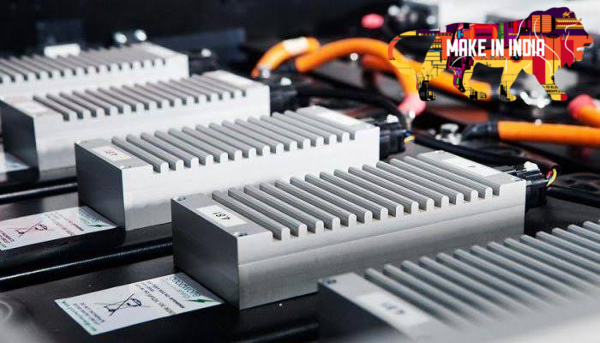Epsilon Advanced Materials Pvt, India’s first manufacturer of lithium-ion battery parts, was set up in August sourcing raw material from the largest steel mill in the country. The plant will be injected with Rs 60 billion ($807 million) of investment to produce 1 lakh tonnes of synthetic graphite anode by 2030, which will amount to about 10 percent of the global demand. The plant has been set up by Vikram Handa, the son-in-law of India’s biggest steel tycoon Sajjan Jindal.
Anode are the negative electrode in lithium-ion batteries and account for a quarter of a cell’s components. Over 80 percent of the world’s supply for these is being produced by China, importing raw materials from countries like India.
Epsilon’s parent company processes the coal tar sourced mainly from JSW Steel Ltd. Converted to thin black pellets or liquid, it can be used in a varying range of products like tyres, fuels and paints. For battery materials, the company would have to further process the tar. The company has secured a patent for furnace design and expects to file three more this year. Currently, it’s exporting precursor anode material to China, Japan and Europe.
Handa’s plan would also get a push from India’s goal to lure manufacturers from China and Transport Minister Nitin Gadkari in March also promised a new battery policy ‘soon’. Epsilon has been in talks with about eight firms that are planning to bid under the government’s project to supply the anode, Handa said.
India has great scope for the production of electric-vehicle batteries locally because it has access to the raw materials, a $20 billion manufacturing incentive plan, a proposed battery materials policy and improving prospects for demand, Handa, 40, said.
“I’m quite optimistic on the outlook for India’s battery space over the next decade,” he said. “It’s going to take another two to three years for really serious money to go into this space but after, you’ll see a lot of money pouring into it. India is such a big auto market that one cannot ignore it.”
Source: HT
You may also like
-
Trade Connect E-platform For Exports Is Single Window, Fast, Accessible And Transformational: Shri Piyush Goyal
-
Dot Simplifies Approval Processes For Telecom Licenses And Wireless Equipment
-
Coal Production and Supply Trends on Positive Trajectory
-
Union Minister To Release Booklets On Promotion Of Indigenous Species & Conservation Of States Fishes
-
2nd India-Japan Finance Dialogue held in Tokyo on 6th September, 2024
